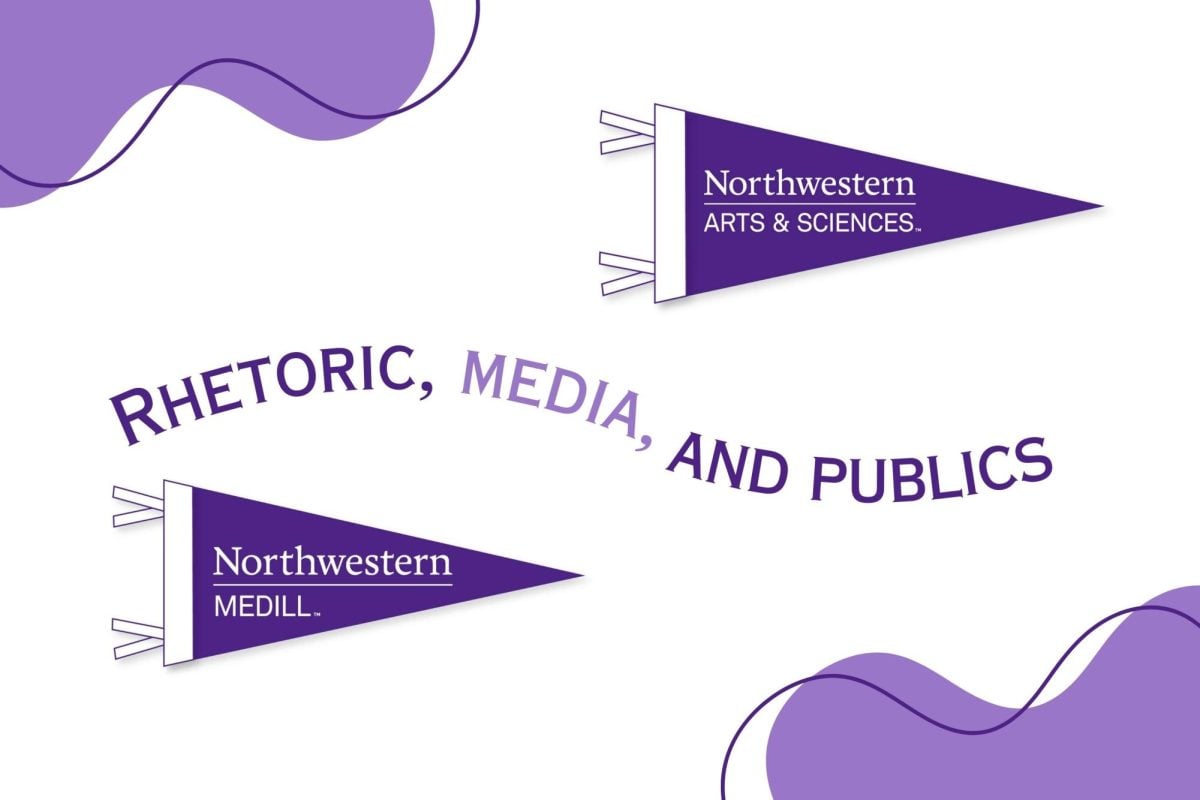Four graduate students make up the first class to be enrolled in the new Rhetoric, Media, and Publics program, born of combined faculty efforts from the School of Communication, Weinberg College of Arts and Sciences and the Medill School of Journalism.
The interschool program replaces the Ph.D. in Communication Studies (Rhetoric and Public Culture) and embraces identified synergies between Weinberg, Communication and Medill, according to Medill Prof. Kalyani Chadha, who directed the original program.
“The goal here was to bring all these talented faculty from all these different schools and see what kinds of research can come out of their interactions with each other, and their interactions with graduate students,” Chadha said. “It was to build a richer intellectual culture at Northwestern.”
The planning for the program began when about 20 faculty members from the three schools drafted a proposal to present to the deans of all three schools.
Now, 14 faculty members serve as core and affiliate faculty, seeking to combine talent from the schools. One of these core faculty members is Communication Prof. Angela Ray.
According to Ray, combining faculty from three schools requires frequent communication.
“There are some things about the day-to-day running of a program that encompasses multiple schools that we’re having to learn about as we go along,” Ray said. “It’s all perfectly possible to do. You just have to bring to the surface some of your own assumptions and accommodate the experiences of other people.”
While the faculty are from all three schools, the Ph.D. will be administered through the School of Communication.
According to the handbook, students achieving this degree will study how “humans constitute individual and group identities, influence others, and generate, maintain, and challenge communities and cultures,” all topics that Chadha said are especially relevant in today’s world.
“We’re trying to see the role that communication and media play in the way people understand questions of identity (and) the way that they understand questions of politics and political participation,” Chadha said. “We’ll be trying to understand how immediate communication influences people’s ideas and their behavior.”
According to Program Assistant Angela Merritt the program is working on updating their website and planning events, such as conferences and colloquiums for Winter and Spring quarters.
The program’s main goal moving forward, Merritt said, is promoting and increasing awareness of the new program.
“To see the growth, see (the program) live in action, see the admitted students join the university and everyone coming together in person was very exciting,” Merritt said.
Planning for the degree began in fall of 2020. In winter of 2022, prospective students applied to the program, and this fall marked the start of this innovative degree.
According to Chadha, the three years of work she and other professors put into making this new program a reality were worth it.
It’s a very ambitious undertaking to get three schools involved and to get them all to sign off on a program,” Chadha said. “It’s a lot of faith on the part of all the three deans to put their support behind it and to encourage us to do this. It wouldn’t have happened without them.”
Email: leahschroeder2026@u.northwestern.edu
Twitter: @lmschroeder_
Related Stories:
— Medill and SESP launch new dual-degree program







